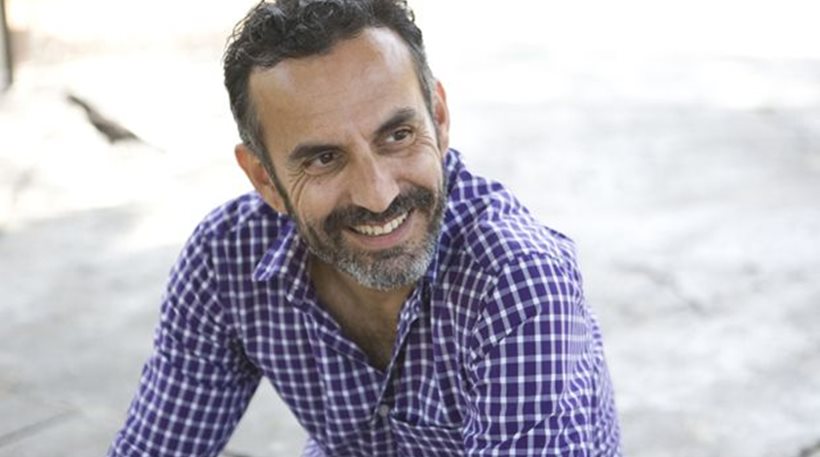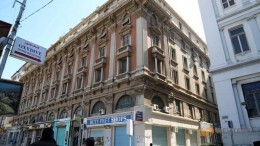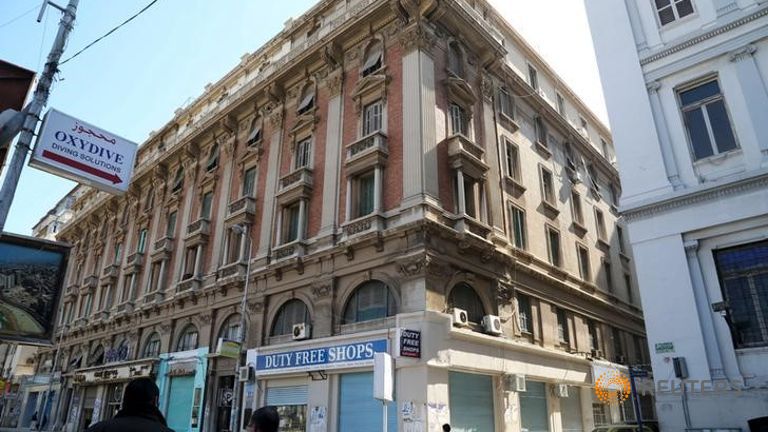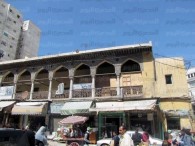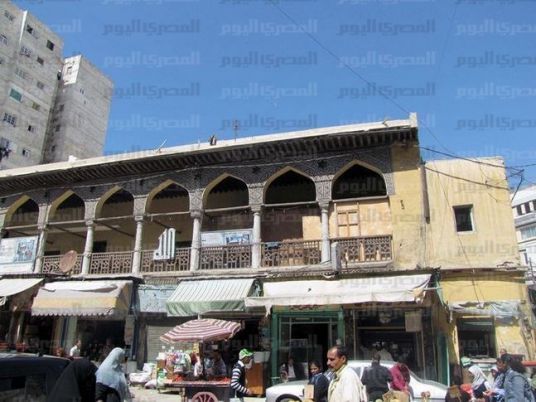 Three Greeks are among the photography staff of Thomson Reuters, which was awarded on Monday a Pulitzer Prize in the Breaking News Photography category, “for gripping photographs, each with its own voice, that follow migrant refugees hundreds of miles across uncertain boundaries to unknown destinations.” The Reuters photo coverage of Middle Eastern migrants arriving in Europe was led from Greece by Yannis Behrakis, chief photographer for Greece and Cyprus, and the Guardian newspaper’s 2015 Agency Photographer of the Year. The other two Greeks on the team that was awarded in the 100th installment of the prestigious event at New York’s Columbia University are Alkis Konstantinidis and Alexandros Avramidis. The team captured a series of images of migrants crowded on flimsy sea craft and their first moments upon reaching Europe. “We showed the world what was going on, and the world cared. It showed that humanity is still alive,” Behrakis said. “We made for these unfortunate people’s voice to be heard. Now with a Pulitzer, we feel that our work has been professionally recognized.” Some images showed families rushing ashore, flailing away in the water or collapsing on the beach. Others juxtaposed the rafters at sea with a cruise ship or a leaping dolphin or the setting sun.This year’s announcement marked the 100th anniversary of the Pulitzers, which began in 1917 after a bequest from newspaper publisher Joseph Pulitzer.
Three Greeks are among the photography staff of Thomson Reuters, which was awarded on Monday a Pulitzer Prize in the Breaking News Photography category, “for gripping photographs, each with its own voice, that follow migrant refugees hundreds of miles across uncertain boundaries to unknown destinations.” The Reuters photo coverage of Middle Eastern migrants arriving in Europe was led from Greece by Yannis Behrakis, chief photographer for Greece and Cyprus, and the Guardian newspaper’s 2015 Agency Photographer of the Year. The other two Greeks on the team that was awarded in the 100th installment of the prestigious event at New York’s Columbia University are Alkis Konstantinidis and Alexandros Avramidis. The team captured a series of images of migrants crowded on flimsy sea craft and their first moments upon reaching Europe. “We showed the world what was going on, and the world cared. It showed that humanity is still alive,” Behrakis said. “We made for these unfortunate people’s voice to be heard. Now with a Pulitzer, we feel that our work has been professionally recognized.” Some images showed families rushing ashore, flailing away in the water or collapsing on the beach. Others juxtaposed the rafters at sea with a cruise ship or a leaping dolphin or the setting sun.This year’s announcement marked the 100th anniversary of the Pulitzers, which began in 1917 after a bequest from newspaper publisher Joseph Pulitzer.
Category: CULTURE
News about culture and cultural heritage
-

Three Greek photographers on Thomson Reuters team to win Pulitzer Prize
-

Greek-Cypriot author Georgiou wins 2016 European Literature Award
 Greek Cypriot author Antonis Georgiou has received the ‘European Literature Award’ for 2016 for his book titled ‘An album of stories’, originally title: ‘Ena alpum istories’, published by ‘To Rodakio’. The European Literature Award started in 2009 by the EU in an effort to promote young successful authors in their home countries to a pan-European audience. The judging committee is made up of 10 people from the countries participating in the event each year. The author wrote on his facebook page that he was pleased to have been selected and thanked the committee. The Award ceremony is scheduled to take place in Brussels at the end of May.
Greek Cypriot author Antonis Georgiou has received the ‘European Literature Award’ for 2016 for his book titled ‘An album of stories’, originally title: ‘Ena alpum istories’, published by ‘To Rodakio’. The European Literature Award started in 2009 by the EU in an effort to promote young successful authors in their home countries to a pan-European audience. The judging committee is made up of 10 people from the countries participating in the event each year. The author wrote on his facebook page that he was pleased to have been selected and thanked the committee. The Award ceremony is scheduled to take place in Brussels at the end of May. -

On Alexandria’s Fouad Street, some have a longing for the elegant past
 Along Fouad Street, a Costa coffee shop near old buildings with Italian and French architecture reminds Egyptians that commercial ventures threaten to erase traces of Alexandria’s aristocratic past.
Along Fouad Street, a Costa coffee shop near old buildings with Italian and French architecture reminds Egyptians that commercial ventures threaten to erase traces of Alexandria’s aristocratic past.ALEXANDRIA, Egypt: Along Fouad Street, a Costa coffee shop near old buildings with Italian and French architecture reminds Egyptians that commercial ventures threaten to erase traces of Alexandria’s aristocratic past.
Named after King Fouad I, who died in 1936, the street is a throwback to a time when the arts flourished in a cosmopolitan city that is now overcrowded and dilapidated like many of Egypt’s urban centres.
Some, like architect and urban planning teacher Ahmed Hassan, are pushing to preserve some relics of the bygone era while keeping pace with growing businesses – the goal of his “Save Alex” initiative, launched in 2012.
“We aim to try to find a balance between civil society and profit-driven private sector to protect the heritage buildings from getting demolished,” Hassan told Reuters.
“We want a system where all stake holders agree on a system to keep the heritage.”
In the past, the city founded by Alexander the Great and once considered the jewel of the Mediterranean, featured a fusion of communities – Greek, Italians, Armenians, Muslims, Christians and Jews.
Fouad Street is the most potent symbol of Alexandria’s grand history, with its elegant villas and antique shops.
A Reuters photo essay captures some of Fouad Street’s past glory at http://reut.rs/21Faim7 .
At a car repair shop once used to service the monarch’s vehicles, for example, mechanics work over cars from the 1930s and 1960s.
Sigma, a company with a branch that has been investing in heritage building, hopes to keep some of the magic of the past turning a profit at the same time.
CEO Laithy Mekawy was influenced by the three years he spent as an architect in Istanbul, where he observed the restoration of historic buildings.
He turned a television company on the ground floor of the old Société Immobiliére building, an 1928 Neo-Renaissance structure, into “L Passage”, a food and cafes court with well known brands.
“I’ve always loved walking on a Friday morning on Fouad street,” Laithy said, describing the weekend day in predominantly Muslim Egypt.
“The beauty of the old architectural buildings, the opera house and the arts centre have kept its beauty for years.”
COSMOPOLITAN PAST
Fouad is one of the oldest streets in Alexandria, featuring landmarks such as a centre that used to house the Mohamed Ali club – named for a past king – built near the British forces base in Alexandria during late 19th century.
On the other end of the long street is a statue of Alexander the Great, a present from the Greek government on the occasion of the opening of Bibliotheca Alexandria library and cultural centre.
British novelist and travel writer Laurence Durrell, author of The Alexandria Quartet, lived on the street, as did Greek poet Constantine Cavafy.
After the Free Officers toppled the monarchy in 1952, multicultural communities that helped turn Alexandria into a modern city began fleeing, and the aristocracy had no place in the city among widespread nationalisations.
Some long for the old days.
Zahraa Awad, who gives special tours of Fouad street, recalls listening to her grandmother’s stories about the Greek, Italian, French, Armenian, Jewish families who owned the Belle époque villas along Fouad street.
“I remember all the names, they represented the cosmopolitan atmospheres of Alexandria,” she said.
“And in the evening when there’s not much cars, you can always hear the piano coming out of the music school of the Conservatoire.”
(Editing by Michael Georgy/Jeremy Gaunt)
-

Alexandria’s ancient sites face extinction due to stalled renovation
 Archaeological sites in Alexandria are facing ruin, with renovation projects by the Antiquities Ministry covering 13 ancient Islamic, Coptic and Jewish monuments stalled due to a shortfall in funding that stretches back many years.
Archaeological sites in Alexandria are facing ruin, with renovation projects by the Antiquities Ministry covering 13 ancient Islamic, Coptic and Jewish monuments stalled due to a shortfall in funding that stretches back many years.Eighty percent of the province’s sites, meanwhile, have not been touched by conservators for tens of years.
Archaeologists have told Al-Masry Al-Youm that the whole history of Alexandria is threatened with extinction, especially since the only UNESCO-registered ancient Coptic site, the Abu Mina archaeological zone, may be removed from the organization’s world heritage record due to high levels of underground water at the 600-feddan site.
Among those concerned is Antiquities Ministry official Mohamed Ali Saeed, the former director of Alexandria’s antiquities. He told Al-Masry Al-Youm that many ancient Islamic sites are near collapse, either due to a lack of renovation work or work being interrupted.
Enumerating the endangered structures, Saeed listed the Shorbagy Mosque, the Terbana Mosque, the Haqqania courthouse, the Ptolemaic Wall, the old towers, the cisterns of Ibn al-Nabih, Ibn Battouta Ismail and Ingy Hanem, as well as the entire Abu Mina Coptic site. He said that while renovations at some sites have been halted for at least six years, others have not seen conservators for more than 20 years.
Saeed urged “immediate intervention” by the ministry to save the historic sites, warning that weather conditions, most notably seasonal winter storms, represent a serious threat to them.
In his warning, Saeed gave special attention to the Abu Mina area, which, he explained, is Egypt’s only Coptic site listed by UNESCO. He said groundwater levels at Abu Mina have reached 5.5 meters, submerging the ancient tomb of Saint Mar Mina.
Ahmed Abdel Fattah, another expert and a member of the ministry’s permanent antiquities panel, warned of rising groundwater levels at the ancient Ptolemaic and Greek tombs of Mostafa Kamel, Shatbi and Anfoushi, where walls and floors are being gradually eroded. He said the structures should be prioritized for renovation, especially due to their exposure to high humidity levels resulting from proximity to the sea.
Abdel Fattah pointed to the endangered ancient Ptolemaic cemeteries of Alabaster and Wardian near the seaport, which he identified as two of the most historical sites in the Alexandria area. The Ptolemaic cemeteries of Souq al-Gomaa, are also suffering “severe deterioration” according to Abdel Fattah.
“They fall between the tramway and low-income housing, surrounded by piles of garbage on all sides,” he noted.
Speaking from Abu Mina, the region’s antiquities official, Father Tedaous Avamina, said that in 2005 the Antiquities Ministry embarked on a LE50 million scheme, sponsored by UNESCO and the government, to reduce groundwater levels at the site. He explained that, though the project was completed in 2010, political upheaval and economic hardship meant there was not enough money for periodic maintenance of the water drainage equipment.
Political instability was also responsible for stalled renovations at other sites. An official source at the ministry’s engineering administration said nearly LE57 million had been earmarked for renovations at the Terbana and Shorbagi mosques since 2009. The official said that, while the first phase of renovations was concluded before the 2011 uprising, later phases were halted due to political upheaval.
According to the official, four other schemes are planned for the same sites, including the renovation of the ancient cemeteries and draining groundwater there. However, work cannot begin until the money has been found.
Edited translation from Al-Masry Al-Youm



